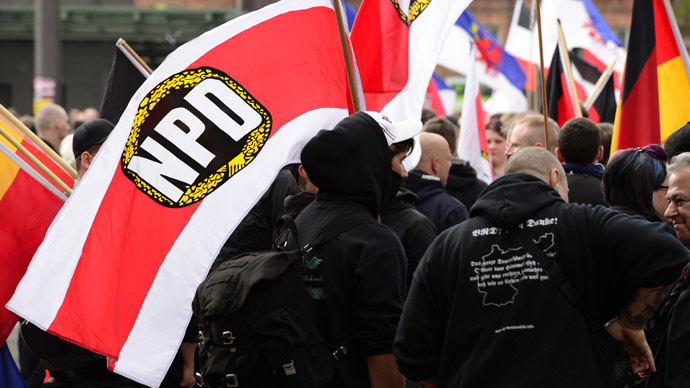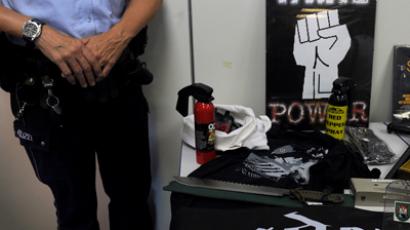‘Go home’: German far-right party sends hate mail to ethnically-mixed politicians

A far-right party in Germany wants politicians of mixed ethnic backgrounds to ‘go home’. It sent them one-way plane tickets ahead of the Sunday election, which quickly resulted in public outrage.
Politicians from the Green Party and the far-left Linke party
became targets of the attacks, leading to the Green Party
candidate Ozcan Mutlu to press charges against the National
Democratic Party of Germany (NPD). The charges have led to German
lawmakers seeking to ban the party from politics.
"Threats like these are anti-democratic and must not go
unanswered," he told Germany’s The Local. He was joined by
Brazilian-born Fabricio do Canto from the online-freedom-advocacy
party, The Pirates, who admitted to the Stern news weekly that
the letter was a “shock” to him and wondered how the
neo-Nazis got his address.
The tickets were from a mock company called ‘Return Airlines’,
with the destination put down as ‘home country’ and the date of
departure as ‘immediately’. They were accompanied by a letter
from the NPD’s Berlin member Jan Sturm, in which he accuses
politicians of differing ethnic descent of trying to politically
influence the lives of ethnic Germans.
This far-right party has caused controversy before. Just last
month they were in the headlines for aggressively protesting
against the construction of a center for political refugees from
countries like Syria, Afghanistan and Serbia.
They also got on the upper house of parliament’s list last
December, when the house voted to ban the party at the Federal
Constitutional Court in a case projected to last for years.
This is not the first time the NPD had locked horns with the
government. About 10 years ago, the court had failed to outlaw it
after deciding that the presence of undercover government agents
among its ranks would negatively impact the case.
This time around, Chancellor Angela Merkel has refrained from
participating in any action against the openly racists party. It
is her belief that another failure by the government to expel the
NPD from politics would result in the party gaining only more
popularity and possibly victimize it.
But the NPD is also among the more successful extremist German
parties. Although no party of this sort has ever made it to the
national parliament, the NPD has secured a place in two state
parliaments, and has the right to seek federal funding for its
election campaigns.














